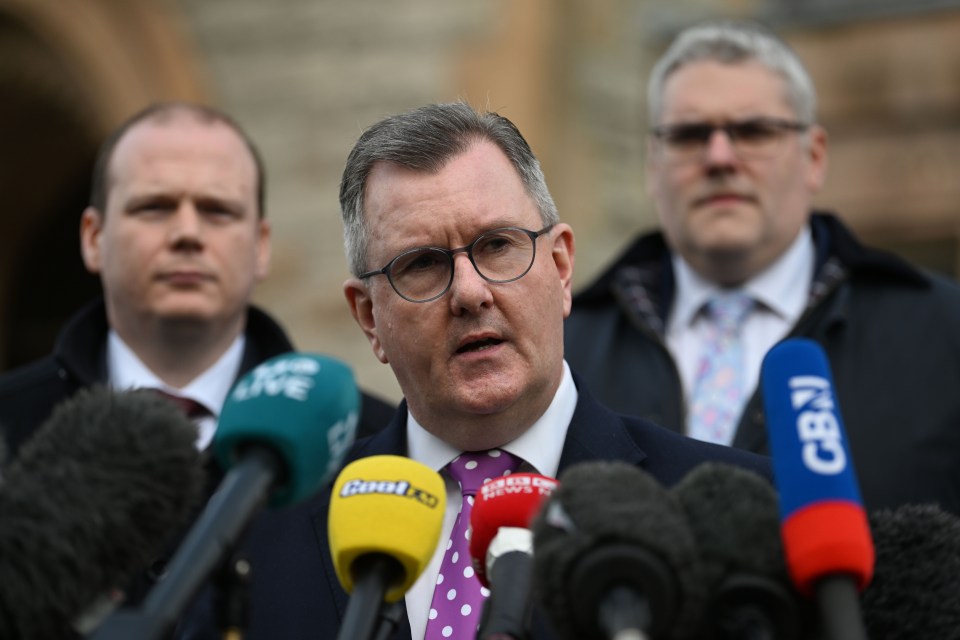Explainer: The DUP won’t back Rishi’s Brexit deal – but does it matter?

The DUP said today that it will vote against Rishi Sunak’s Windsor Framework Brexit plans.
Party leader Sir Jeffrey Donaldson is concerned about the so-called ‘Stormont brake’, which allows the assembly to block new incoming rules from Brussels from applying in Northern Ireland.
“Whilst representing real progress, the ‘brake’ does not deal with the fundamental issue which is the imposition of EU law by the protocol,” he said.
He implied the DUP wants the brake to go further, and grant Stormont the power to reject or repeal old conditions imposed by the bloc on Northern Ireland, not just new future EU rules.

The fact that the DUP will vote against the deal isn’t going to derail it entirely.
A Conservative majority and Labour support will likely allow it to pass through the Commons, while James Cleverly and the EU’s Maros Sefcovic will formally adopt the pact on Friday.
But Donaldson hinted that he’s willing to refuse to return to the power-sharing arrangement at Stormont in an attempt to get the changes the DUP want to see.
According to a BBC report, Donaldson said the DUP was committed to the restoration of the political institutions “under the right circumstances”.
“We haven’t come this far to falter in the final lap,” he said.
Northern Irish citizens have had no government ministers since February 2022, effectively leaving the region in limbo.
Getting the assembly back to work, was part of the intention behind the Windsor Framework Brexit deal itself.
This is because the ‘Stormont brake’ can only be applied if the assembly is back up and running.
Downing Street reportedly hoped the brake would be enough to push the DUP back into the power-sharing deal. But presented with this catch-22, Donaldson has opted to call Sunak’s bluff.
How this will play out, remains unclear.
In the meantime, it will likely take some of the shine off Sunak’s managerial style, who wants to be seen as a problem-solver and leader who can restore the Conservative party’s credibility ahead of an election.
But, for now, the Sunak’s Windsor Framework hasn’t quite solved all of the problems he hoped it might.
